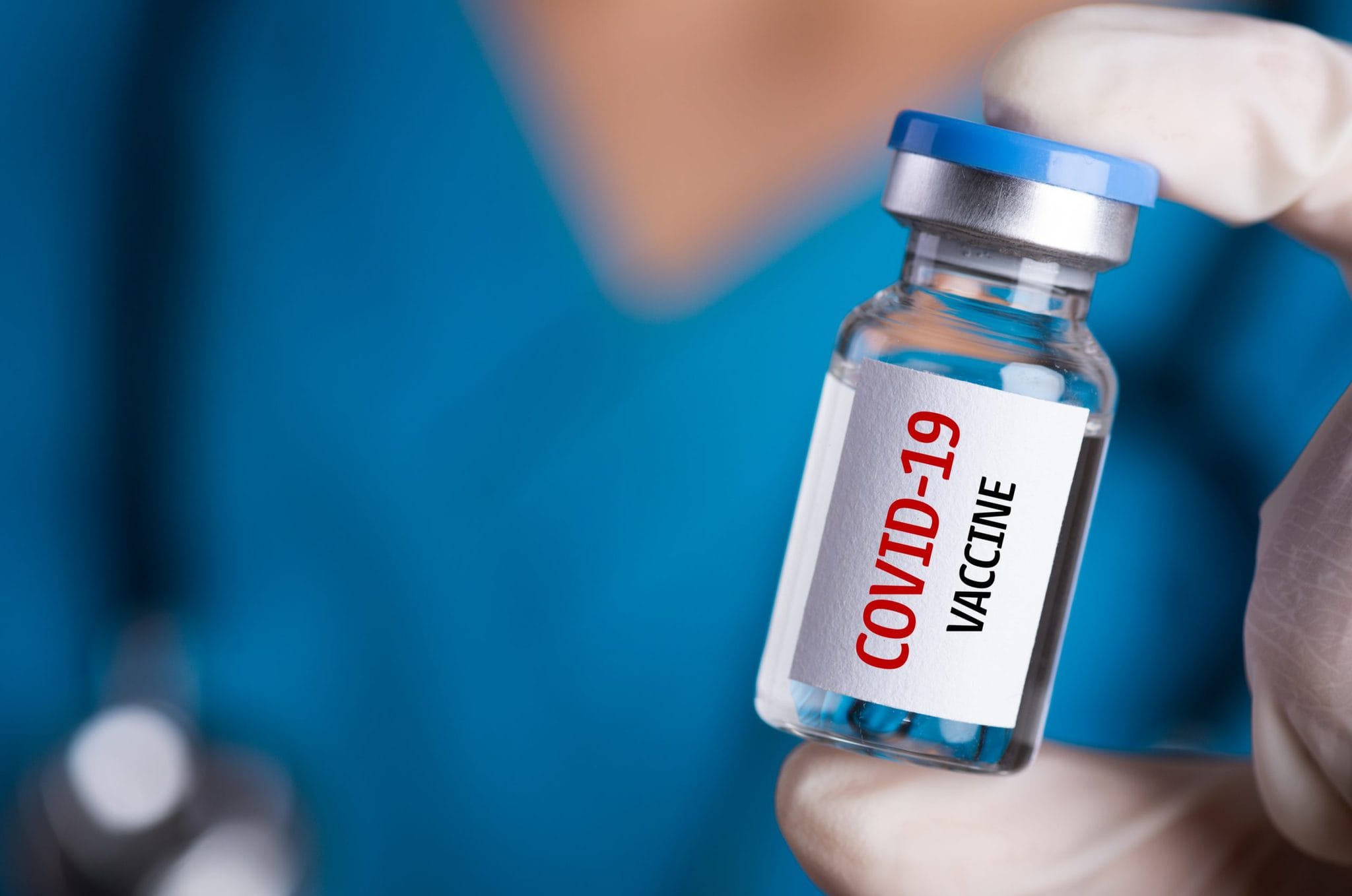Here in the U.S., average daily rates of COVID-19 vaccines administered has increased from 2.5 million in March to a peak of 3+ million in April. On April 28, the U.S. reached over 234.6 million total doses administered with 98 million persons (29.5% of the total U.S. population) fully vaccinated (i.e., having received either both doses of Pfizer/BioNTech or Moderna vaccine or one dose of the Johnson & Johnson/Janssen vaccine). All states have expanded eligibility to all individuals 16 years of age or older as of April 19, 2021.
In the first four months of the vaccine rollout, many communities faced challenges in securing and reaching an appointment. Inequities in vaccine uptake have persisted across race, ethnicity, income, disability, etc. While race and ethnicity data are frequently unknown or unreported in the Centers for Disease Control & Prevention (CDC) COVID Data Tracker (i.e., the CDC’s tool for sharing key COVID-related data with the general public), White/Non-Hispanic persons reportedly represent a disproportionate share of those to receive a first dose and be fully vaccinated. Meanwhile, 82% of all persons 65 years and older are estimated to have received at least one dose to date with 68% being fully vaccinated. This is consistent with federal and state eligibility guidance that prioritized older individuals in the earliest phases of the rollout. Female individuals were slightly more likely than males to have received one dose and be fully vaccinated. To learn more about effective communication strategies can be used to address COVID-19 vaccine-related concerns and access challenges, please visit a related Attorney General Journal blog post.
By vaccine type, 53% of shots administered were Pfizer/BioNTech, 44% were Moderna, and 3.5% were Johnson & Johnson/Janssen. This is largely because the Pfizer/BioNTech and Moderna mRNA vaccines were authorized months prior to Johnson & Johnson/Janssen and have since greatly increased their production and delivery processes. The U.S. has secured 600 million total doses (i.e., 300 million each) of the Pfizer/BioNTech and Moderna vaccines, enough to vaccinate the estimated 260 million eligible adults. Both companies anticipate completing these contracted orders by end of July 2021 with consistent and stable deliveries occurring on a weekly basis. Additionally, the U.S. is contracted to receive another 100 million doses of the Johnson & Johnson/Janssen vaccine as well as doses from the yet unauthorized AstraZeneca/University of Oxford and Novavax vaccines.
Although the U.S. will have more than enough doses of both mRNA vaccines for the entire adult population, other vaccines like Johnson & Johnson/Janssen could play a critical role in meeting the needs of key groups. Among those individuals that have not yet been vaccinated and are “waiting and seeing,” a slightly larger proportion say they would “definitely” get the Johnson & Johnson/Janssen vaccine as compared to those who would take Pfizer/BioNTech and Moderna (8% and 7%, respectively). The most frequently offered reason was that the Johnson & Johnson/Janssen vaccine is a single shot. Logistically, the single-shot and more flexible storage requirements have made the Johnson & Johnson/Janssen vaccine an ideal candidate for many states in reaching hard-to-reach and/or transient populations (e.g., homebound individuals, unhoused or unstably housed individuals). Yet there have been challenges to the rollout of the Johnson & Johnson/Janssen vaccine.
At the end of March 2021, news broke that a manufacturing facility outside of Baltimore for Emergent BioSolutions, a contractor for Johnson & Johnson/Janssen’s and AstraZeneca’s vaccines’ production, had a mix-up between components used for both vaccines that resulted in 15 million doses of Johnson & Johnson/Janssen’s being unusable and destroyed. Since then, Johnson & Johnson/Janssen has fully taken over the plant’s production to avoid future mistakes and awaits Food & Drug Administration (FDA) approval to officially resume manufacturing. Following the error, the CDC announced that far fewer doses of Johnson & Johnson/Janssen’s vaccine would be distributed to state- and federally-managed vaccine administration sites. It is also unclear how the continued FDA review of the Emergent BioSolutions plant will slow overall production.
On April 13, the CDC and FDA jointly released guidance calling for a pause in the administration of Johnson & Johnson/Janssen vaccine in the U.S. in response to six cases of a combination of a very rare blood clotting disorder (i.e., cerebral venous sinus thrombosis (CVST)) and low platelet counts (i.e., thrombocytopenia) among women ages 18 – 48 within six to 13 days after receiving the vaccine. These cases are similar to those observed among those who received the AstraZeneca vaccine in Europe, another adenovirus-based vaccine. The CDC’s Advisory Committee on Immunization Practice (i.e., an independent body of medical and public health experts that develop recommendations on the use of vaccines in the U.S. civilian population) met to discuss the situation on April 14. The committee called for the pause continue until more data was available and reconvened on Friday, April 23. At the end of that meeting, ACIP recommended ending the pause on Johnson & Johnson/Janssen vaccine administration for all individuals 18 years of age and older with updated warnings that note the potential risk. The CDC and FDA formally adopted these recommendations shortly after. Although this pause and investigation by CDC and FDA was taken in response to an extremely rare combination of conditions (i.e., one case per million shots administered) involving just one of the three vaccines currently authorized here in the U.S., it will take careful messaging to reassure the public of the vaccine’s safety moving forward.
Beyond navigating reports of adverse events and slowdowns in production, the U.S. must be prepared to pivot towards vaccinating children under 16 years of age as they are authorized for these age groups in the coming months. Pfizer/BioNTech, Moderna, and Johnson & Johnson/Janssen all have ongoing trials in younger individuals. On April 9, Pfizer/BioNTech formally requested FDA consider expanding its existing authorization for children ages 12 to 15 years of age (Pfizer/BioNTech is the only vaccine currently authorized for persons 16 – 18 years of age). Although it is not yet clear how quickly the FDA will make a final decision on this expansion, it is anticipated that it will likely occur before the start of the next school year this fall. Already, some colleges and universities are moving to require COVID-19 vaccination for students and/or staff participating in-person for next fall.
In the weeks ahead, members of the attorney general community should monitor and be aware of the following possible key events related to the vaccines’ rollout:
- Supply of COVID-19 vaccines soon exceeding demand. As a result, a concerted effort to address individual and collective hesitancy and barriers in accessing the vaccines will be even more critical.
- Additional vaccine manufacturers possibly seeking authorization in the U.S., including the two-dose AstraZeneca/University of Oxford and Novavax vaccines.
- Further increased vaccine supply secured by the U.S. government via new or amended contracts with manufacturers, particularly in preparation for children’s vaccinations and/or adults’ boosters.
- Updated evidence-based guidance on how fully-vaccinated individuals may return to normal pre-pandemic activities.
- Additional data gathered and published regarding the effects of COVID-19 variants on vaccine efficacy as well as rates of transmission and mortality for those variants.
- Possible increases in the numbers of schools, employers, etc., requiring proof of COVID-19 vaccination for individuals returning to in-person activities. For more information regarding the legal and policy implications of the COVID-19 vaccine, please see NAAG’s materials from a related training held in December 2020.
- Additional data gathered and published regarding the long-term effectiveness of existing COVID-19 vaccines (i.e., when or if individuals will need to be revaccinated) and their ability to prevent transmission of COVID-19, including among asymptomatic cases.
Throughout 2021, NAAG will continue to provide informational updates and training opportunities to the attorney general community as COVID-19 vaccine distribution and related legal issues evolve. For more information on NAAG’s response to the COVID-19 pandemic, visit NAAG’s public health-related updates.






